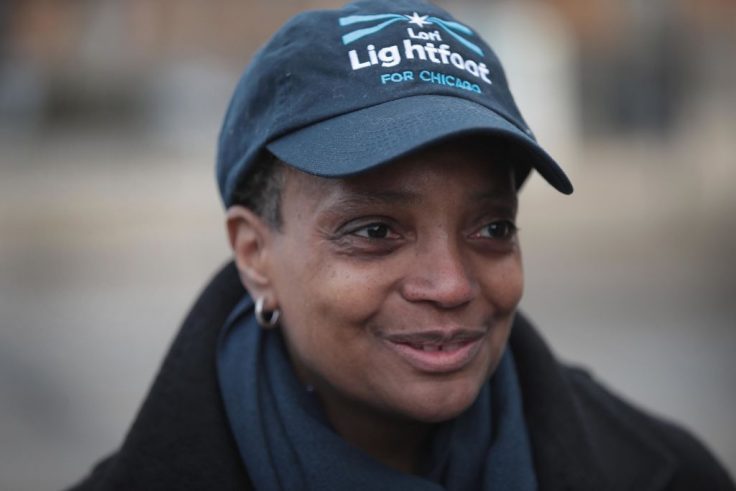Chicago mayor Lori Lightfoot (D.) defended the personal police force deployed on her residential street, saying she has a right to protect her property and her family.
"We are living in very different times and I’ve seen the threats that have come in, and I have an obligation to keep my home, my wife, my 12-year-old, and my neighbors safe," Lightfoot said. "I think that residents of the city, understanding the nature of the threats that we are receiving on a daily basis, understand that I have a right to make sure that my home is secure."
Chicago police banned protests outside the mayor’s home in Logan Square, citing a law that prohibits protesting in residential neighborhoods, and threatened to arrest those who refuse to leave. Lightfoot did not specify the types of threats she and her family have received.
The mayor began taking a harder stance on demonstrations following a looting spree that cost Chicago-area businesses millions of dollars in stolen merchandise—which Chicago’s Second Ward alderman Brian Hopkins (D.) blamed on Lightfoot’s lack of leadership and preparation.
"There is no way to defend this, there is no way to excuse this," Hopkins told WGN Chicago on August 10. "This is a complete and utter failure of leadership. You can’t blame the police officers on the street, you can’t blame the men and women wearing the blue shirts. They do what they’re told to do.... This is a problem with leadership and a problem with the command, and this is just a complete failure to address this. The mayor needs to address the city."
Meanwhile, Lightfoot is leading a group of more than 1,400 mayors from across the country to create a plan for police reform. The plan includes a "co-responders" model, in which non-police officials will be dispatched to respond to some emergency calls—especially in minority neighborhoods.
Anti-police and racial justice protests—which in many major cities including Chicago have turned violent—began in late May following the police-involved deaths of George Floyd and Breonna Taylor.
